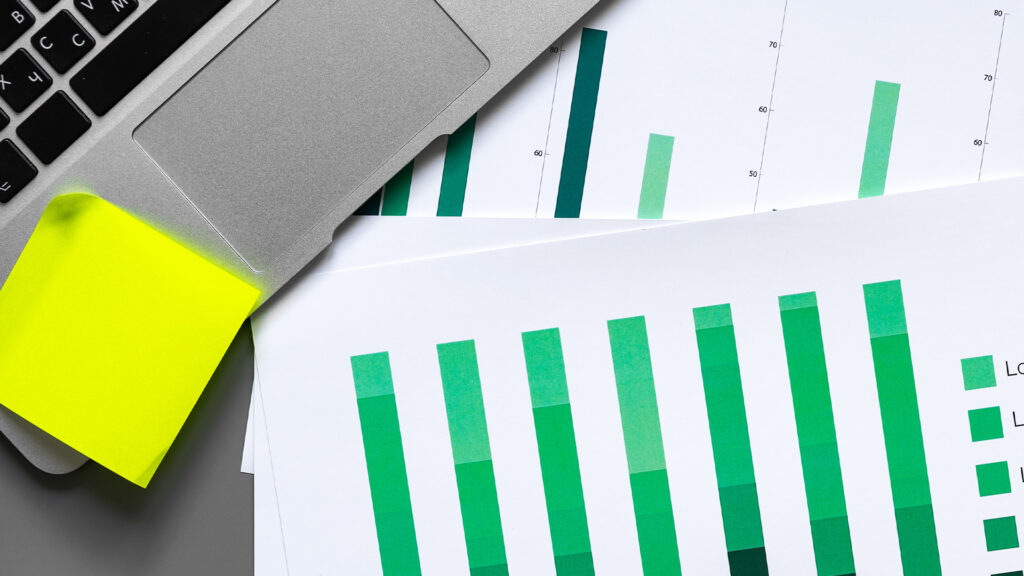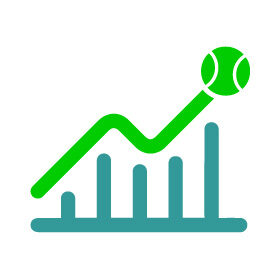Table of Contents
ToggleMindset, method, and money management: What separates the best from the rest.
Sports trading sits somewhere between the thrill of watching sports and the calculated world of financial markets. You’re not just betting on who wins; you’re playing the odds themselves, buying and selling positions on platforms like Betfair or Smarkets as prices shift before and during the game. It sounds straightforward enough, and honestly, getting started is pretty easy these days.
But there’s a world of difference between dipping your toes in and actually making a consistent living from it. That journey, from wide-eyed beginner to seasoned pro, is what we’re talking about here. It’s less about a sudden leap and more about a fundamental shift in how you approach the whole thing. The core mechanics rely on betting exchanges, which allow users to both ‘back’ (bet for an outcome) and ‘lay’ (bet against an outcome), creating a dynamic market.
When Enthusiasm Isn’t Quite Enough
Let’s be real, most people get into sports trading because they love sports. Maybe they follow a team religiously, know all the stats, and figure, “Hey, I know this stuff, maybe I can make some money.” And that passion? It’s great fuel, initially. But it can also be a bit of a blind spot. The amateur trader often starts out treating it like an extension of their fandom, maybe a fun hobby alongside their day job.
Their motivations are usually a mix – the excitement, the challenge, maybe the dream of hitting a big win. They might even think of their trades as ‘investments’, but often without really digging into what makes a good one, like understanding expected value or managing risk properly. The initial approach tends to be a bit… scattered. Trying a bit of this, a bit of that, maybe jumping between different sports or strategies based on what worked last week, or what someone mentioned online. There’s often more hope than hard data driving decisions.
And mistakes? Oh, they happen. It’s part of learning, sure, but amateurs often fall into predictable traps. Overtrading – clicking away constantly without a solid reason – burns through capital and mental energy fast. Then there’s the flip side: “analysis paralysis,” where you think so hard about a trade that the opportunity just vanishes.
Maybe the biggest one is letting losing trades run, hoping they’ll magically turn around. That’s when a calculated trade morphs into a desperate gamble. Often, there’s not enough prep work, no deep dive into why the odds are what they are, or maybe a failure to stick to one or two sports and really learn the ropes. It’s easy to focus too much on predicting the final score, like a traditional bettor, instead of zeroing in on those price movements, which is where the real trading game lies.
The Money Question: Handling the Ups and Downs
Here’s where things often really go sideways for beginners: managing the money. It sounds basic, but it’s critical. Many start without a dedicated pot of cash just for trading. They mix it with their everyday funds, which makes tracking performance a nightmare and ramps up the pressure when things go south. You start thinking about rent money, not risk management.
Staking becomes erratic. Maybe risking way too much on one trade because it feels like a ‘sure thing’, or chasing losses by doubling down after a bad run – classic Martingale traps that look smart on paper but can wipe you out faster than you can blink.
There’s often no clear plan for how much to risk per trade, maybe just a gut feeling, heavily influenced by whether you won or lost the last one. And stop-losses? Often, they’re just a vague idea rather than a hard rule. Letting small losses balloon because you just know it’ll turn around… well, that’s a recipe for disaster. Proper bankroll management and staking plans are essential shields against this.
Getting Your Head Straight
Honestly, the biggest hurdle is often psychological. Trading stirs up emotions – fear, greed, frustration, euphoria. The amateur trader is often riding that rollercoaster. Fear makes you hesitate on good trades or bail out of winning ones too early. Greed pushes you to over-stake or chase unrealistic profits. Frustration after a loss?
That leads straight to revenge trading: impulsive bets to win back what you lost, usually making things worse. Even a winning streak can be dangerous, breeding overconfidence and leading you to ditch your plan and take silly risks.
It’s tough. You see prices moving, and that fear of missing out (FOMO) kicks in, pushing you into trades you haven’t thought through. There’s often a lack of sheer discipline – the ability to stick to your rules, your plan, your risk limits, day in and day out, even when it feels boring or scary.
These psychological traps create a nasty cycle: risk too much, lose big, feel terrible, make impulsive decisions, lose more. It stems from treating trading like a game of chance rather than a game of skill and probabilities. Mastering trading psychology is non-negotiable for consistency.

So, What Makes a Pro Different?
Okay, let’s flip the coin. What does professionalism actually look like in sports trading? It’s not about having some secret magic formula. It’s about a collection of traits and habits, applied consistently.
Discipline is king. Professionals stick to their plan, their rules, their risk management, religiously. Even when it’s tempting to deviate, even when they hit a losing streak. They treat it like a job, often with structured routines for preparation, execution, and review. They shut out the noise and focus.
They think analytically. They’re comfortable with numbers, probabilities, and finding value. Decisions aren’t based on gut feelings or team loyalty; they’re rooted in data and a tested strategy designed to exploit market inefficiencies. Patience is another big one. They understand it’s a long game, waiting calmly for the right opportunities that fit their criteria, rather than forcing trades just for the sake of action.
Objectivity is key. They stay level-headed, win or lose. A loss isn’t a personal failure; it’s data. It’s feedback. They learn from it, adapt, and keep improving. They understand risk isn’t something to fear, but something to manage carefully through smart bankroll allocation and position sizing. And they’ve got resilience. They can take the hits, the drawdowns, the pressure, without crumbling emotionally.
The Professional’s Playbook: Structure and Strategy
This mindset translates into a very different way of operating. Professionals usually specialize. They don’t try to be experts in everything; they pick a sport, a league, maybe even a specific type of market (like pre-match odds swings), and they go deep. This allows them to spot nuances others miss.
Their strategies are built around finding an ‘edge‘ – a quantifiable reason why their approach should be profitable over time. This often involves serious statistical analysis, maybe even building models, but always focused on finding ‘value‘ where the market odds don’t quite match the real probability. Identifying situations with positive Expected Value (+EV) is fundamental. They prepare meticulously before trading, analyzing data, news, and market sentiment. And they use the right tools – trading software with ladder interfaces for quick execution, charting tools, real-time data – to give them every advantage.
Execution is disciplined. Trades are entered and exited based on pre-defined rules. They know exactly why they’re getting in and, crucially, when they’ll get out, win or lose. Sometimes, the best action is no action, and they have the patience to wait.
Mastering the Inner Game
Ultimately, the professional edge often comes down to mastering the inner game. They learn emotional detachment. A trade is just a trade, one of hundreds or thousands. They focus on executing their process flawlessly over the long haul, not on the outcome of any single event.
Losses are expected, accepted, and analyzed for lessons learned. They build genuine confidence in their edge through testing and results, allowing them to act decisively without being crippled by fear. They accept uncertainty as part of the deal. It’s about self-awareness, understanding their own biases and triggers, and actively managing them.
Trading Like a Business
Here’s the fundamental shift: professionals treat trading as a business. Amateurs often treat it as a hobby. What does that mean in practice? It means structure. It means planning. It means meticulous record-keeping.
Pros track everything: every trade, the rationale, the outcome, the P/L. They use this data to analyze their performance, calculating metrics like ROI, win rate, average win/loss size, and maybe even things like Closing Line Value (CLV) to see if they’re consistently beating the market. This isn’t just number-crunching; it’s how they identify what works, what doesn’t, and where they need to improve. It removes guesswork and emotion from the equation.
This commitment to analysis fuels continuous improvement. They study, they adapt, they refine. They know the market changes, and they need to change with it. Amateurs, without this data-driven feedback loop, often stagnate, repeating the same mistakes or sticking with flawed approaches.
Bridging the Chasm
Making that leap from enthusiastic amateur to disciplined professional isn’t easy. It requires a conscious decision to change your perspective and your habits. It means embracing the long view, focusing on consistent execution rather than chasing quick wins. It demands building emotional resilience and unwavering discipline. It means setting up a proper bankroll, sticking to a staking plan, and treating every trade as part of a larger business operation.
It’s about detailed record-keeping and honest self-assessment. It’s a journey of continuous learning and adaptation. It takes dedication, patience, and a willingness to put in the work, day after day. But understanding these differences, recognizing where you might be falling short, that’s the crucial first step. The path from amateur enthusiasm to professional execution is challenging, absolutely, but it’s a path that can be navigated with the right mindset and approach.





